This is Home: Veronica Morozova, a Ukrainian-Russian in Hackney Wick
Hackney Wick resident Veronica Morozova speaks to us about her early life in Kyiv and Prague, the Ukrainian cuisines that keep her rooted in her heritage, and why the East End attitude resonates with her.
Kyiv-born Veronica Morozova, 32, lives in Hackney Wick her six-year-old son, Lucian. Aged seven, she moved with her parents to Prague and returned to Kyiv as a teenager. Morozova moved to London in 2008 to study media at Goldsmiths, University of London, and is now a freelance copywriter and editor.
She is half-Russian and half-Ukrainian. She speaks to us about her early life in Eastern Europe, the cultural norms and cuisines that keep her rooted in her heritage, and why the East End attitude resonates with her.
What is your first memory?
It was a seaside trip with my family to Crimea, I think I might have been around for four and I just remember throwing pebbles into the sea. It was a pebble beach, so the pebbles are what I remember really well, because I was throwing them into the water and trying to get a bigger splash than my dad. We were having a little competition. So yeah, that is quite a distinct memory, being there with my parents. It was a very beautiful part of Crimea actually and I would like to go back to one day, maybe when the war ends.
What was your favourite childhood toy, and did you name it?
I grew up in the post-Soviet Union where you couldn’t get anything really in the 90s in Ukraine. So, I do remember very, very well my first Barbie that my dad brought back from a business trip from China, which was a really big deal because they didn’t sell Barbies in Ukraine at the time. I didn’t have a name for her, but she was the classic Barbie with blonde hair, and I just cherished her. I took her everywhere. I was so proud because it was so rare. It wasn’t like my other friends had Barbies, so I was one of the first ones to get one. So, it was special.
I brought her to any playdates that I had with my friends and then I remember getting really excited when one of my friends got a Ken Doll so we could do the whole Barbie and Ken thing. We had makeshift outfits for them as well, because you couldn’t buy the extra accessories, so we got little bits of cloth from my grandma and go through her sewing kit to improvise outfits.
Who was your childhood best friend and what did you enjoy doing together?
My childhood best friend was this girl when I moved to Prague aged seven. She’s Estonian, her name is Kaisa. We actually started off not liking each other; we were really different. She was a tomboy, and I was girly girl but somehow we ended up friends because of our shared love for the Spice Girls. She would be Sporty Spice and I would be Baby Spice and we were just role-playing that. We were just such huge fans, and we’d listen to CDs and dance around the living room, she in Adidas tracksuits and me in a baby blue crop top, really cringe. We definitely raided our mums’ wardrobes too to find random outfits that we thought made us look really grown up.
We loved our music so, besides Spice Girls, we explored music together and exchanged other Britpop CDs, like Blur or Oasis.
What initially attracted you to come to the UK
I came for university when I was eighteen. I really wanted to work in magazines, and I wasn’t sure whether I wanted to be a journalist or a photographer, but I always had a really massive collection of magazines when I was in high school. I read Dazed & Confused. I was absolutely obsessed with it, and iD, and Nylon, which was an American magazine. I would just I would have stacks and stacks and stacks of them, and I would do little cut-out collages because this was before Pinterest existed. So, I really wanted to go to London because that was the place to be to study media journalism. I went to Goldsmiths to do a media degree.
Initially, I was homesick. I felt London was very isolating and difficult because I was used to going to small schools and, Kyiv and Prague, they’re not massive cities compared to London. I just found it really hard to adjust to London life initially, so I was quite lonely; it definitely wasn’t love at first sight. It was quite hard mentally to just adjust. But, as I went through my BA and I met new people and I started to integrate, I really fell in love with the city.
What cultural habits and rituals traditions have you retained and why?
It’s tricky because our culture was so enmeshed in the Soviet Union; Ukrainian culture was erased, in some ways, like we were almost going through Russian imperialism, so we were kind of forced to adopt their rituals. So, I’m doing a lot of relearning about Ukraine now, and its history and literature, but I feel quite conflicted about it because I don’t want to abandon my mum’s Russian side.
One thing that I always do is a proper Russian/Ukrainian New Year’s Eve. I make traditional foods such as a potato salad and sit down at the dinner table late, usually at 10pm, and have the TV on and wait until midnight. You spend it with your closest family and friends. I’ve just never understood the way that in Britain people go out clubbing on New Year’s.
I also love wearing a vyshyvanka, which is a Ukrainian national embroidered top. I wear it at special times of the year, like New Year. There’s even a Vyshyvanka Day which is celebrated on the third Thursday of May, that’s how important our national dress is. I bought mine in Kyiv six years ago, and it’s just really beautiful. Every time I wear it, everyone’s like, ‘Where’d you get it?’
In what ways have you found it hard to grapple with your dual nationality during the Russian invasion of Ukraine?
The fact that my mum’s Russian and I speak Russian, that’s the language I grew up with, it just felt really confusing because I’m not a nationalist, but it’s forced me to think about my values and what each country stands for. Ukraine is defending its right to be a democracy and choose its own fate. I can’t not stand for sovereignty and democracy versus an authoritarian regime.
Russia was always dominant; everyone knows Russian literature, Russian ballet. And so it was easier to tell people, ‘Yeah, I’m half Russian’, so they would have an understanding of my heritage. Whereas now, if I say I’m Ukrainian, people have a really good idea of who we are and what we stand for, so I think that’s been a major shift. And now, I can proudly say, ‘Yeah, I’m Ukrainian’, but still proud of my Russian roots. I’m not going to be embarrassed about the fact that my mum is a native Russian or that I’m a Russian speaker. I’m not gonna apologise for that. But I definitely want to amp up my Ukrainian side because, finally, I’m proud so proud to be Ukrainian.
What is the best way to bridge cultural divides between people?
Food and cooking can really bring people together; that’s such a massive thing for me, you know, because, a lot of times, people don’t know anything about Ukrainian culture. Food is basic and fundamental, and so it’s an easy and beautiful way to discover other people’s cultures. I love London for that; you can find all kinds of incredible foods.
Over the years, I’ve learned to perfect the most famous Ukrainian dish, borscht. My grandma has a really good recipe that I’ve used over the years, and I remember the first time I cooked it was when I was really homesick at uni, but it wasn’t very good. If I have friends coming to stay for the weekend, I will always make a big big big pile of borscht. It’s a beautiful red colour topped with dill. Dill is a very big part of our cooking. I love dill, that’s the smell of home to me. If I could summarise one thing that just brings me back to Ukraine, it’s the smell of dill for sure.
What does the East End mean to you?
Pleasantly chaotic. I think some people when they first come to the East End, they’re just like, ‘whoa’, from the intense smell of different markets, food cooking, and people milling around. But, to me, to be honest, the East End is the epitome of city life and I love that. I like that whole chaos and the different smells and the people, even the rude people; it’s real. It is what it is, and it’s unashamedly itself, you know, like, ‘this is us, take it or leave it’, which is why I like it here.
There’s a confidence in that, the attitude of ‘we’re not gonna change for anyone’. That kind of attitude I get about the East End. Although obviously, there is gentrification and stuff inevitably does change, but I do think people, mostly, try to preserve that uniqueness of it as much as they can.
I see a direct line with being Ukrainian. We really want to preserve our Ukrainian-ness, and we’re fighting to be ourselves and we don’t want to be taken over by anyone, we want to decide our path, and we’re also unashamedly Ukrainian. I really value those traits and that way of thinking. You’re not trying to be something you’re not, and I definitely get that sense with everything that’s going on in Ukraine. People are just like, ‘We’re Ukrainian. You’re not going to tell us what to do.’ So, I think there’s a parallel there with the East End as well, you know, and we’re gonna try as much as we can to just be who we are.
If you enjoyed this, then read our interview with Ayaan Gulaid and her work for Somaliland recognition.

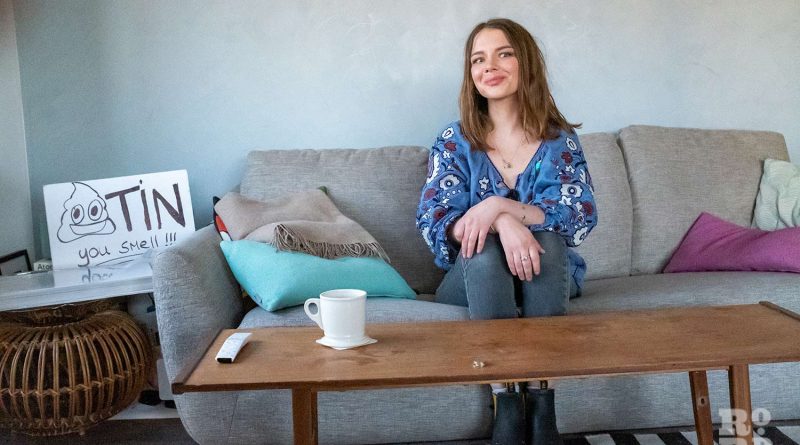


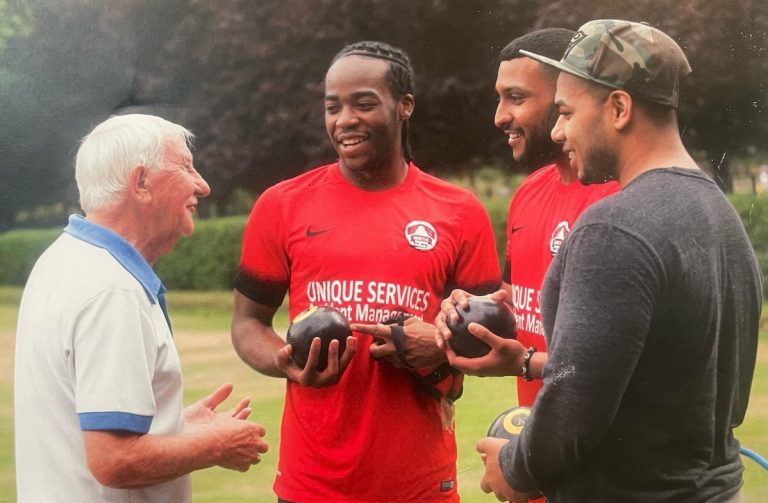
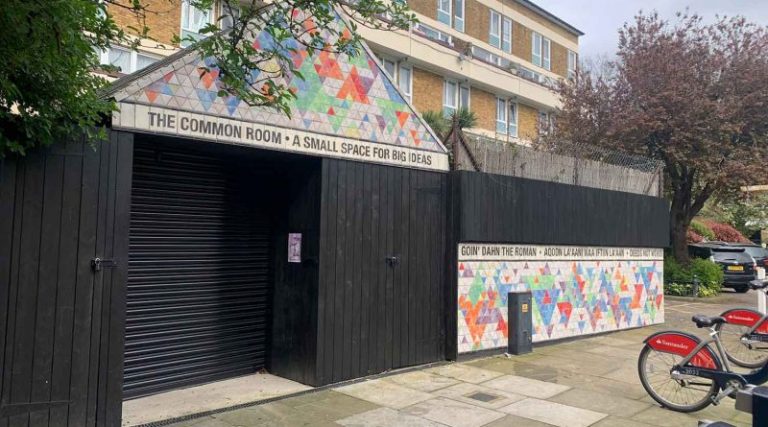
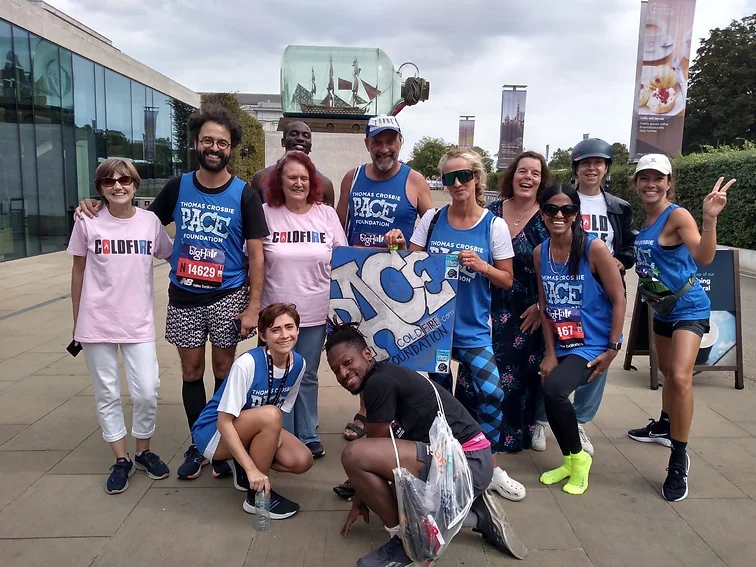
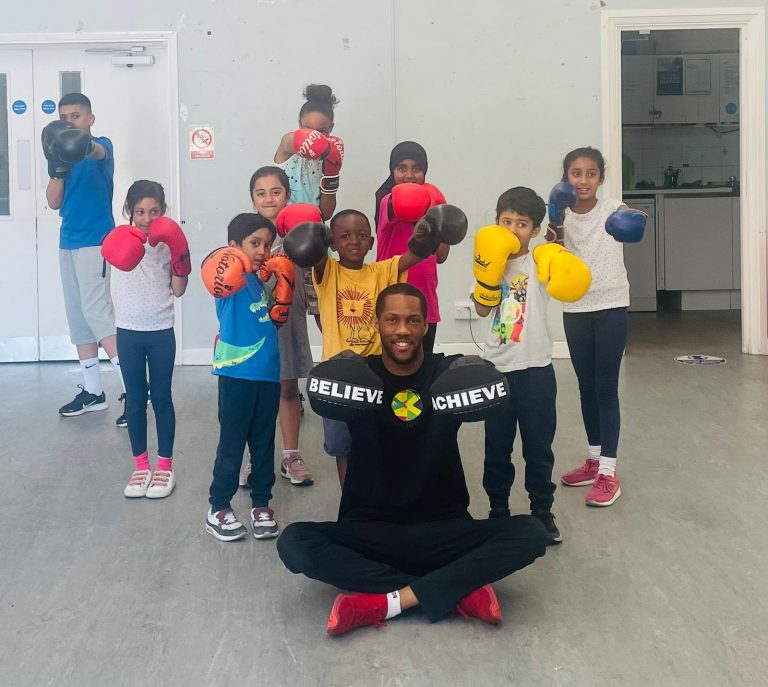

Top story.